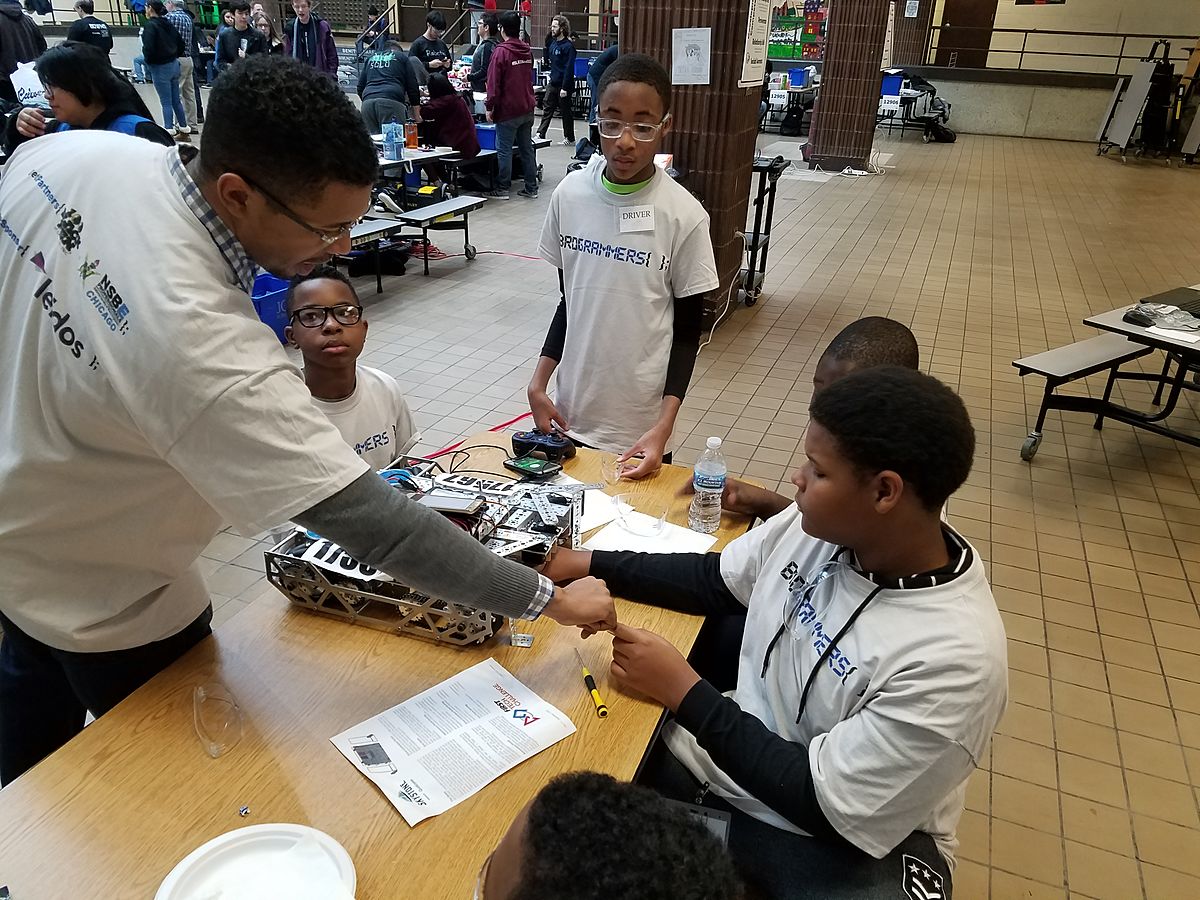When 100 Black Men of Chicago was invited to join the UChicago Community Programs Accelerator as an associate member in early 2019, it was exactly the right moment, according to board president Carl H. Tutt, Jr. As the group prepared to celebrate its twenty-fifth anniversary, its board was seeking a new executive director, and was also looking for help to strengthen its infrastructure and processes.
Founded in 1994, 100 Black Men of Chicago is the local chapter of a nationwide volunteer organization that provides educational and mentoring opportunities to youth, with an emphasis on connecting successful African-American professionals with young African-American men for mentoring in everything from education to economic empowerment.

“We knew we needed an executive director not just to help us right now, but to take us into the future,” Tutt says. “The Accelerator has helped us clarify the process of finding that person, and has also helped us become more intentional in many other things that we do,” including hiring staff and recruiting board members using the framework developed for the executive director search.
The Accelerator’s associates program provides South Side nonprofits with general support over the course of a year to build capacity, complete specific projects, and connect with University resources. For 100 Black Men, now entering its second year as an associate member, that has meant digging deeply into the organization’s needs and opportunities with the help of University faculty and student consultants. In addition to helping Tutt and the board prepare to choose a new executive director, consultants are helping 100 Black Men create a new website; formalize its communications with members, donors, and the public; and implement leadership development training for its board and members.
“Being part of the Community Programs Accelerator allows us to move forward on purpose and with intention. We’re planning our next decade, which will be pivotal for us as we focus on what we can become rather than on what we are.”
The first phase of the leadership development initiative will last a year, with at least twenty members of 100 Black Men participating, Tutt says. “When we talk about the value of membership in 100 Black Men, now we’re able to talk about giving members something they can use anywhere in their careers,” which will make membership even more attractive, build member loyalty, and enable the organization to start a formal succession planning process.
Other University resources that the group has been able to access through the Accelerator have also been extremely helpful, Tutt says. For example, a workshop on fundraising has inspired 100 Black Men to reorient its approach. “Most of our funding requests have been to corporations,” he explains, “but I was surprised to learn in the workshop that almost 70 percent of 501(c)3 funding comes from individuals. I also learned a great deal about how all members of our organization need to be part of resource development and relationship-building. It opened my eyes to what we need to be doing differently.” The board is now exploring new fundraising strategies, including subscription-based donations, that will help 100 Black Men become a more sustainable organization.



